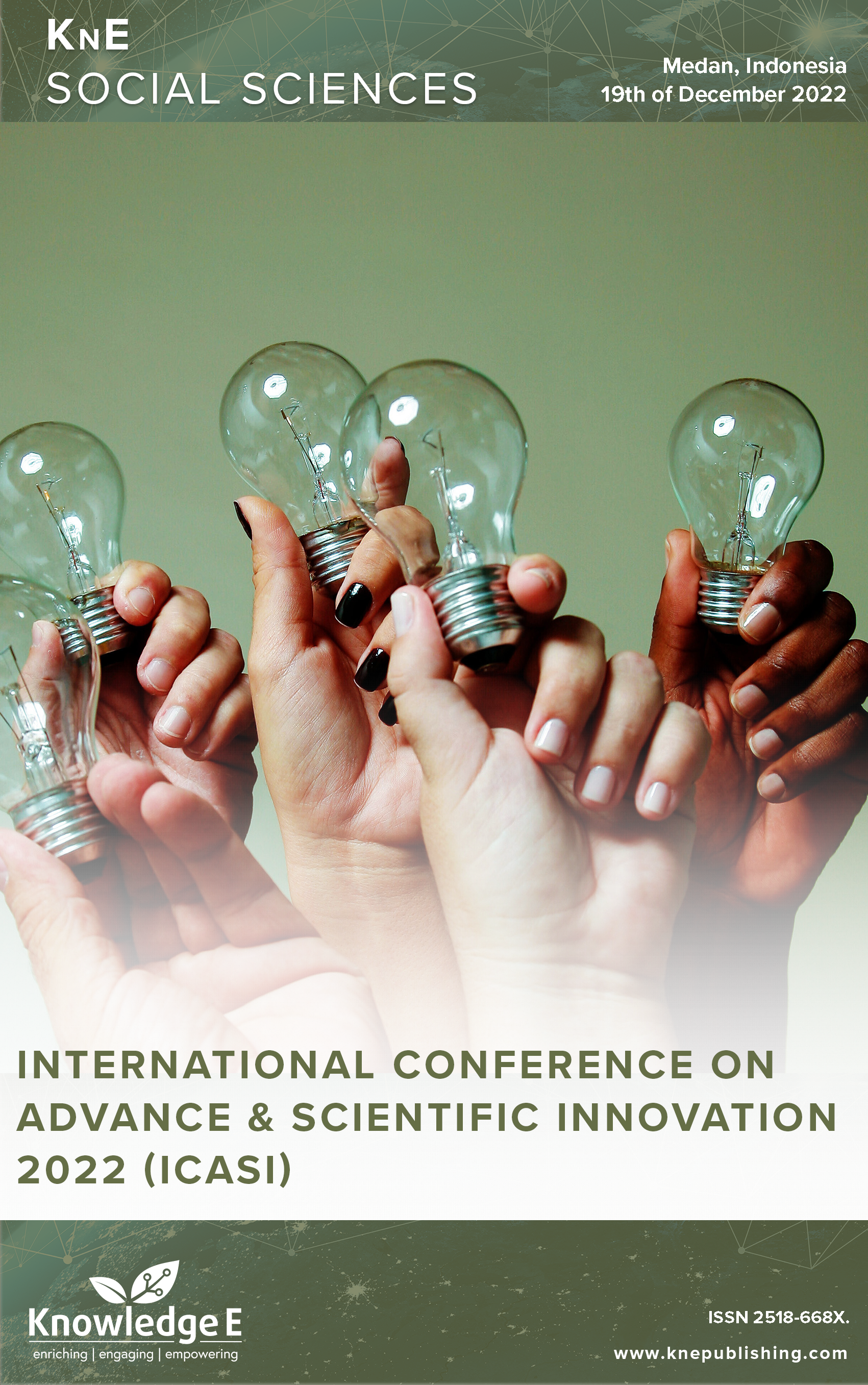Reconstructing Intellectual Capital through Islamic Religiosity
DOI:
https://doi.org/10.18502/kss.v8i9.13354Abstract
Current technological developments have shifted the industrial world from a capitalintensive to a knowledge-based industry. We often find that companies have been awarded higher market value than their book value. Various researchers believe this honor that is given by society to be intellectual capital. Unfortunately, different intellectual ideas presented are still dry, materialistic, secularistic, and far from religious values. This research explained how to reconstruct Intellectual Capital through Islamic spirituality with the method of spirituality through the dimensions of the foundations of Islam. In the spiritualism paradigm, high spiritual norms of faith, good deeds, and noble morals become the foothold. The results of this study produce human capital Rahmatan Lil Alamin which runs full of faith and piety, and structure capital, which is to form an administrative building and run the company not only for profit motives but to provide human benefits by carrying out Sharia principles. Relational capital will be in the form of habluminallah and habluminannas, namely developing and strengthening corporate relationships internally in the company and with stakeholders, shareholders, and society and nature with the principle of amaliyah and providing Value towards Godhead.
Keywords: Intellectual Capital, Relational Capital, human, Structure, Islamic Religiousity
References
[2] Petty R, James G. Intellectual Capital Literature Review: Measurement, Reporting And Management. J Intellect Cap. 2000;1(2):155–76.
[3] Artinah B, Ahmad M. The Effect of Intellectual Capital on Capital Gain (Empirical Study of Banking Companies Listed on the Indonesian Stock Exchange). Spread. 2011;1(1).
[4] Serenko A, Nick B, Lorne B, Khaled S. A Scientometric Analysis Of Knowledge Management And Intellectual Capital Academic Literature (1994-2008). J Intellect Cap. 2009;10(1):8–21.
[5] Al-Awary AF. Religiosity without knowledge is religiosity that needs treatment. https://www.elbalad.news/4968411. Sep. 17, 2021.
[6] Qardhawi Y. Islamic Economic Norms and Ethics. Jakarta: Gema Insani; 2016.
[7] Ellison CW. Spiritual Well Being: Conceptualization And Measurement. J Psychol Theol. 2000.
[8] Aryanto I. Implementation of Islamic Spiritual Care Guidance to Meet the Spiritual Needs of Patients Jurnal Bimbingan, Penyuluhan, Konseling dan Psikoterapi Islam. 2017;5(3):241–260.
[9] 9. K. McPhail, A review of the emergence of post-secular critical accounting and a provocation from radical orthodoxy. Perspectives on Accounting. 2011;22(5). https://doi.org/10.1016/j.cpa.2011.01.007.
[10] Pöyhönen A, Anssi S. Assessing Intellectual Capital Creation in Regional Clusters. J Intellect Cap. 2004;5(3):351–65.
[11] Lucas J. Learning Native Wisdom: What Traditional Cultures Teach us About Subsistence, Sustainability and Spirituality. J Agric Environ Ethics. 2009;22:607–10.
[12] Soegiarto D. Islamic Intellectual Capital in Creative Industries in Kudus with the Gusjigang Approach. Surakarta: Univeritas Sebelas Maret; 2020.
[13] Lanza L, Haefner B, Kraemer A. Optimization for selective assembly and adaptive manufacturing by means of cyber-physical system based matching. CIRP Ann. 2015;64(1):399–402.
[14] Heclau F, Galeitzke M, Flachs S, Kohl H. Holistic approach to human resource management in Industry 4.0. in Procedia CIRP, https://doi.org/10.1016/j.procir.2016.05.102.
[15] Bontis N, William C, Stanley R. Intellectual Capital and Business Performance in Malaysian Industries. J Intellect Cap. 2000;1(1):85–100.
[16] Mulawarman AD. Sharia Accounting Theory, Concept and Financial Statements. Malang: Bani Hasim Press; 2011.
[17] Triyuwono I. Sharia Accounting Perspective, Methodology and Theory. Malang: PT Raja Grafindo Persada; 2012.
[18] Tan HP, David P, Phil H. Intellectual capital and financial returns of companies. J Intellect Cap. 2007;8(1):76–95.
[19] Hariyadi B. Building Civilization Through the Principle of Shari’ah Equality. Jurnal Kajian Hukum Islam. 2020;7(2):90–106.
[20] Mickley JR, Soeken K, Belcher A. Spiritual well-being, religiousness and hope among women with breast cancer. Image J Nurs Sch. 1992;24(4):267–72.
[21] Triyuwono I. So, What is Sharia Accounting? Jurnal Ekonomi, Manajemen dan Akuntansi Islam (IMANESI). 2013;1(1).

